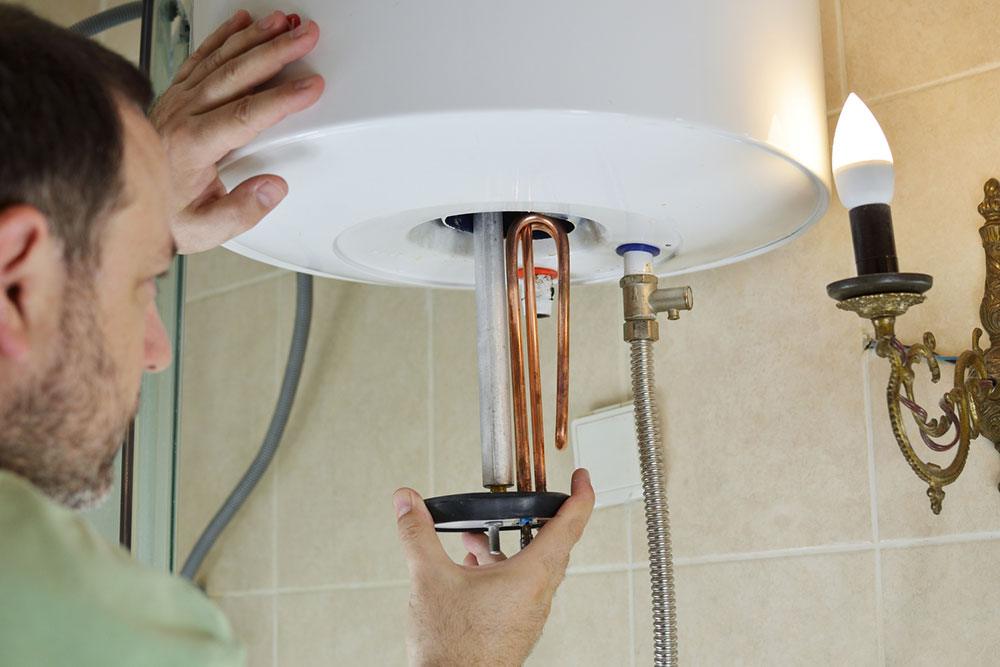Benefits of Combi Boilers and Tips to Choose the Right One
Installing a separate central heating system and a separate system to heat water can be expensive. It can also raise a person’s monthly utility bills. Combi boilers or combination boilers are a great solution for those looking to avoid additional expenses. They do the work of both a central heating system and a water heater. So, it is not surprising to see that many people are opting for combi boilers today.
Advantages of installing combi boilers
- Cost-effectiveness
One can save a considerable amount by swapping conventional boilers with combination boilers. Combi models heat water instantly as it enters from the main source instead of continuously maintaining a tank of hot water.

Since one does not have to wait for the system to heat up before hot water is released, combi boilers save power and are more sustainable than traditional water heaters. Their carbon emissions are much lower than those of conventional boilers, which is a huge advantage against the backdrop of climate change.
With traditional heaters, one has to wait for a long time for the water to heat up again after someone else has used it. With combi boilers, however, there is absolutely no waiting time, as the system dispenses hot water instantly.
Unlike traditional boilers that are bulky and take up a lot of space, combi boilers are compact, so they can be easily installed even in tiny rooms and small houses. Their size also makes them portable. One is unlikely to have any problem transporting them when moving homes or changing the unit’s location within a home.
Since water in combi boilers is not stored in a tank for long, there is no chance for dust or debris to accumulate. They provide access to clean, hygienic drinking water at all times. Even the cold water combi boilers supply is clean and safe to drink.
Tips for buying a combi boiler
- Check how many kilowatts it can produce
The number of kilowatts a combi boiler can produce indicates how many rooms it can heat up. So, if a combi boiler produces fewer kilowatts, it may not be suitable for large homes. However, combi boilers with a large kilowatt output usually end up costing more to operate in the long run. So, when buying a unit, one should check the number of kilowatts it produces, one’s budget limit, and the size of one’s home. Individuals should zero in on a combi boiler that best integrates all these aspects. - Pick between an electric or gas combi boiler
Gas combi boilers are powered by fossil fuels, so they are not sustainable. In contrast, electric ones are eco-friendly, but their running costs are quite high. Both gas and electric combi boilers have pros and cons, so one should research beforehand. Individuals should also consider their requirements before picking between an electric and gas combi boiler. - Check whether the combi boiler is energy-efficient
Combi boilers usually have energy ratings marked on them, which one must check carefully before purchasing. Models with low energy ratings may consume too much power and can cause one’s electricity bills to skyrocket with time. Individuals should bear in mind that gas combi boilers are approximately 93% energy efficient, whereas electric ones have 99-100% energy efficiency. - Look for smart combi boilers
Smart combi boilers can be paired with a smart thermostat, which can increase energy efficiency considerably. So, one should consider choosing smart combi boilers offered by reputed brands. - Finalize the location beforehand
Combi boilers are compact, so they do not really take up much space in homes. However, it is better to fix their location beforehand. Moving the unit to another location after it is installed can be hard. This can be problematic, especially for seniors looking for affordable combi boiler replacement services.
Combi boiler installation and replacement cost
Depending on the size, type, and brand, combi boiler prices can range between $2,200 and $6,000. In addition, one would have to pay for the installation and replacement (if required), which may cost $1,500 to $16,000, with $7,200 being the average price. So, when picking a combi boiler, one should consider not only its base price but also the installation and replacement expenses and maintenance costs. One should set a budget range based on these factors to avoid a potential financial crunch.
Buying a combi boiler is beneficial in many ways, but there are also some downsides one should consider. These machines may have complex components and chips and may be more expensive to repair when damaged. Also, if a household’s demand for water is very high, the boiler may not be able to fulfill one’s requirements. But again, these issues may be controlled to a large extent when one chooses an option carefully after researching and considering their needs.

